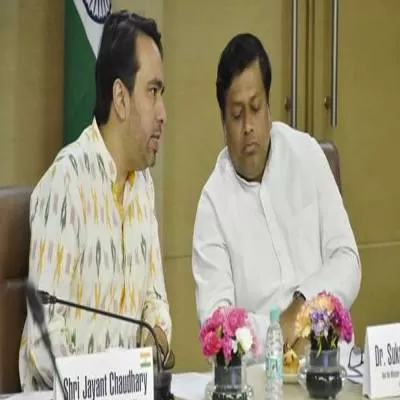
Mumbai, April 10 -- In a move to advance India's workforce readiness, the Ministry of Skill Development and Entrepreneurship (MSDE), in partnership with the World Economic Forum (WEF), discussed the launch of the "India Skills Accelerator" during a roundtable at Kaushal Bhawan in New Delhi.
The initiative will serve as a national platform for public-private collaboration to close skill gaps, promote innovation, and drive structural reforms in skilling. It will focus on increasing awareness of future skill demands, encouraging partnerships among stakeholders, and updating policies to build a more adaptive and inclusive skilling ecosystem.
With 65% of organisations identifying skill gaps as a barrier, the Accelerator aims to enable reskilling and upskilling, align education with industry needs, and support agile career transitions-particularly in areas like AI, robotics, and energy.
The governance of the Accelerator includes both government and industry leaders. The platform is co-led by Minister of State Jayant Chaudhary and Dr Sukanta Majumdar, along with industry co-chairs Shobana Kamineni of Apollo HealthCo and Sanjiv Bajaj of Bajaj Finserv.
Chaudhary described the Accelerator as a catalyst for systemic transformation and said India is uniquely positioned to become the "Skill Capital of the World" thanks to its youth population and expanding skilling ecosystem. He also highlighted the need to prioritize sectors such as advanced manufacturing and formalization of the informal economy.
Dr Majumdar emphasized the need to embed global competitiveness in India's skill architecture and noted that India is skilling not only for domestic needs but for global demand. He pointed to the National Education Policy's flexibility and focus on vocational and digital pathways as examples of reform.
WEF's Managing Director Saadia Zahidi praised the initiative as a vital step in preparing India's workforce for a fast-changing global job market and expressed confidence in its large-scale impact.
Experts at the roundtable discussed identifying 10-12 high-impact priorities, forming sector-based working groups, and aligning the initiative with WEF's Future of Jobs 2025 report. Participants included leaders from MSDE, WEF, NSDC, NCVET, DGT, and various educational bodies such as UGC, AICTE, NCERT, and CBSE.
Published by HT Digital Content Services with permission from Construction World.
